Making meatballs from scratch can transform an ordinary meal into something extraordinary. Whether you’re topping spaghetti, stuffing them into sandwiches, or serving them as appetizers, homemade meatballs beat store-bought ones any day.
But even experienced cooks sometimes struggle with meatballs that fall apart, taste bland, or come out tough. These game-changing hacks will revolutionize your meatball game forever!
1. Grate Your Onions

Forget chopping onions until your eyes flood with tears! Grab a cheese grater and shred those tear-jerkers directly into your meat mixture. The grated onion practically disappears, releasing moisture that keeps meatballs tender while distributing flavor evenly throughout.
No more biting into chunky onion pieces or watching kids pick them out! This technique also eliminates the pre-cooking step many recipes require. The fine texture means the onion cooks perfectly inside the meatball without remaining raw.
2. Panade Power
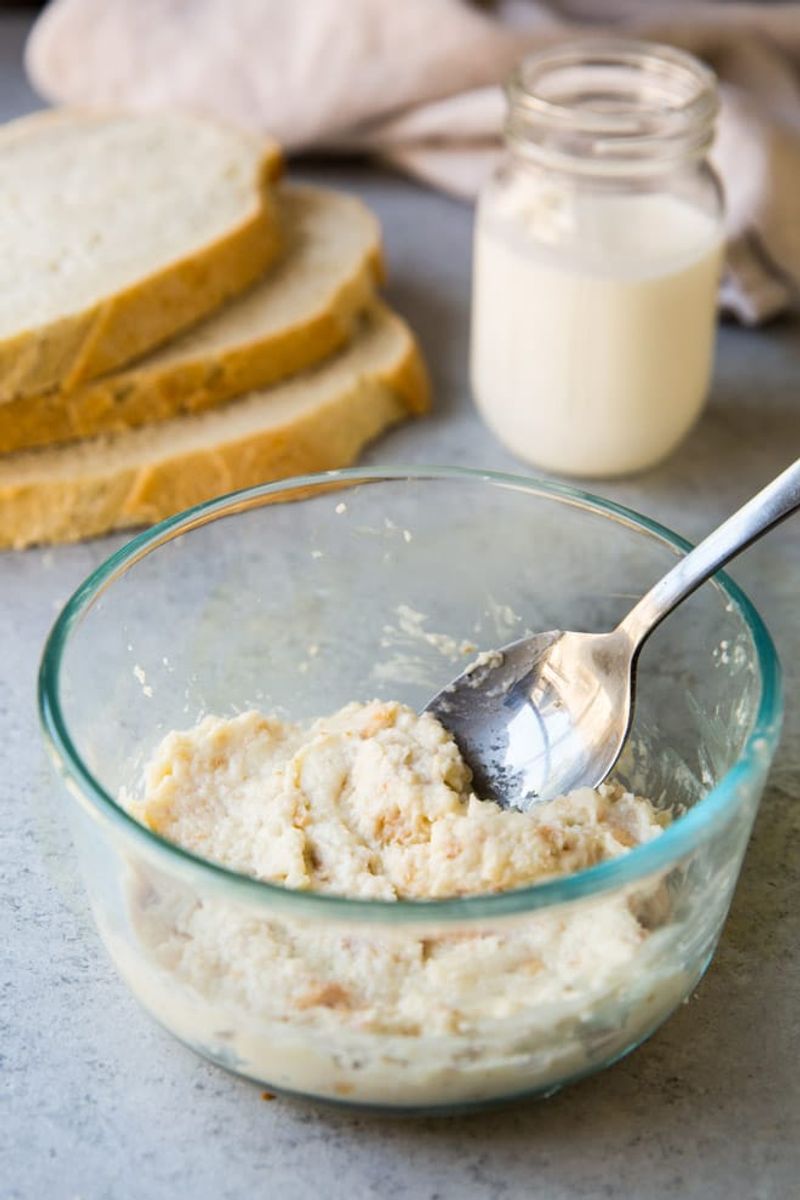
Bread soaked in milk isn’t just old-school Italian grandma wisdom—it’s culinary science! This magical mixture (called a panade) acts like meatball insurance against toughness. Simply tear fresh bread into small pieces, soak in milk until soft, then mash and mix into your meat.
Unlike dry breadcrumbs that absorb moisture, a proper panade releases moisture during cooking. The milk proteins interfere with the meat proteins’ ability to tighten up, resulting in meatballs so tender they practically melt in your mouth.
3. Chill Before Cooking
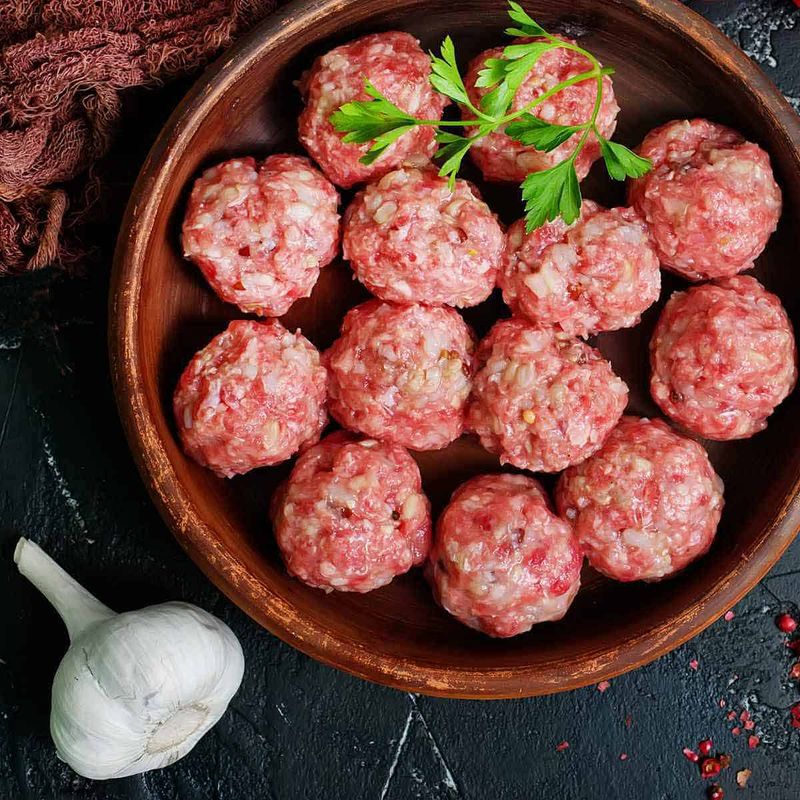
STOP! Don’t toss those freshly rolled meatballs straight into the pan! Pop them in the fridge for 30 minutes first. This game-changing step firms up the fat, helping meatballs hold their shape during cooking instead of flattening into sad meat pancakes.
Cold meatballs develop a better sear when they hit the hot pan, creating that coveted crispy exterior while locking in juices. The proteins also have time to relax and bond, improving both texture and flavor.
4. Ricotta For Ridiculous Tenderness
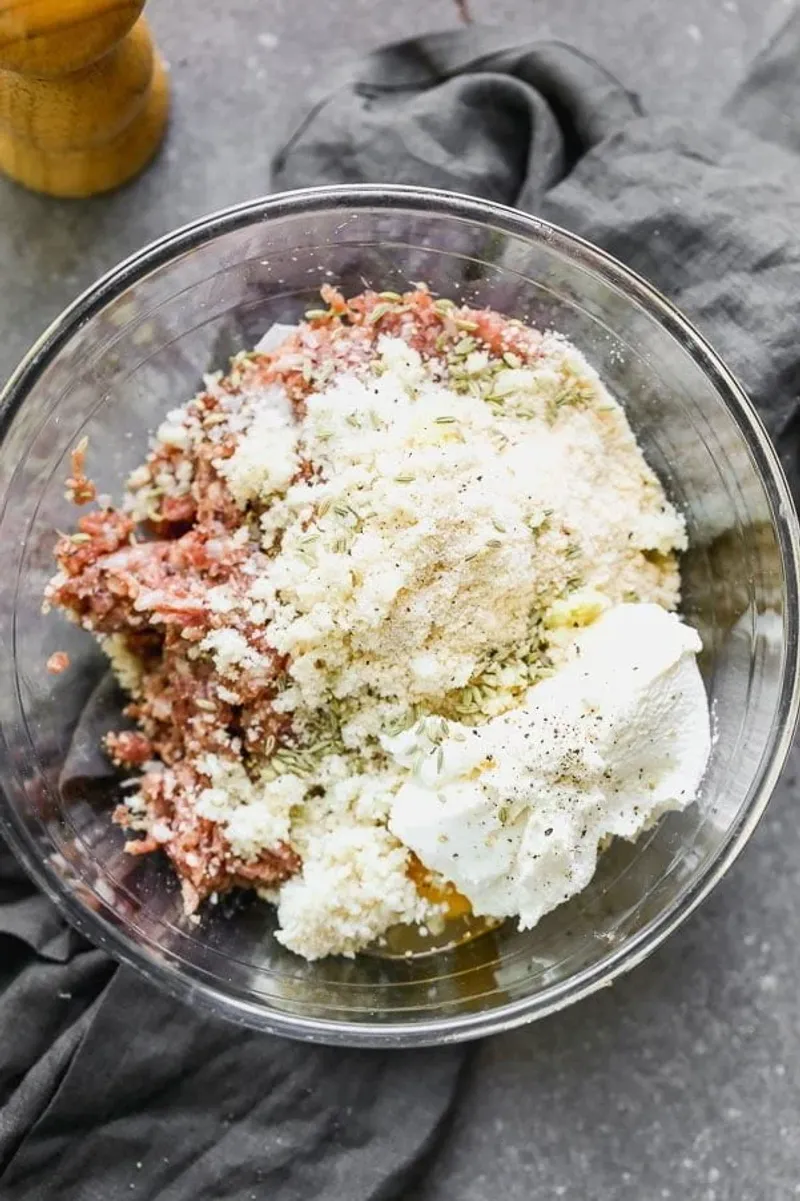
Move over breadcrumbs—ricotta cheese is the secret weapon your meatballs never knew they needed! Adding 1/4 cup of creamy ricotta per pound of meat creates meatballs so tender you’ll wonder if they’re floating.
The cheese’s high moisture content and fat work double-duty, preventing proteins from binding too tightly while adding richness. Unlike other cheeses that become stringy when heated, ricotta melts seamlessly into the mixture, leaving no evidence except extraordinary tenderness.
5. Baking Soda Magic
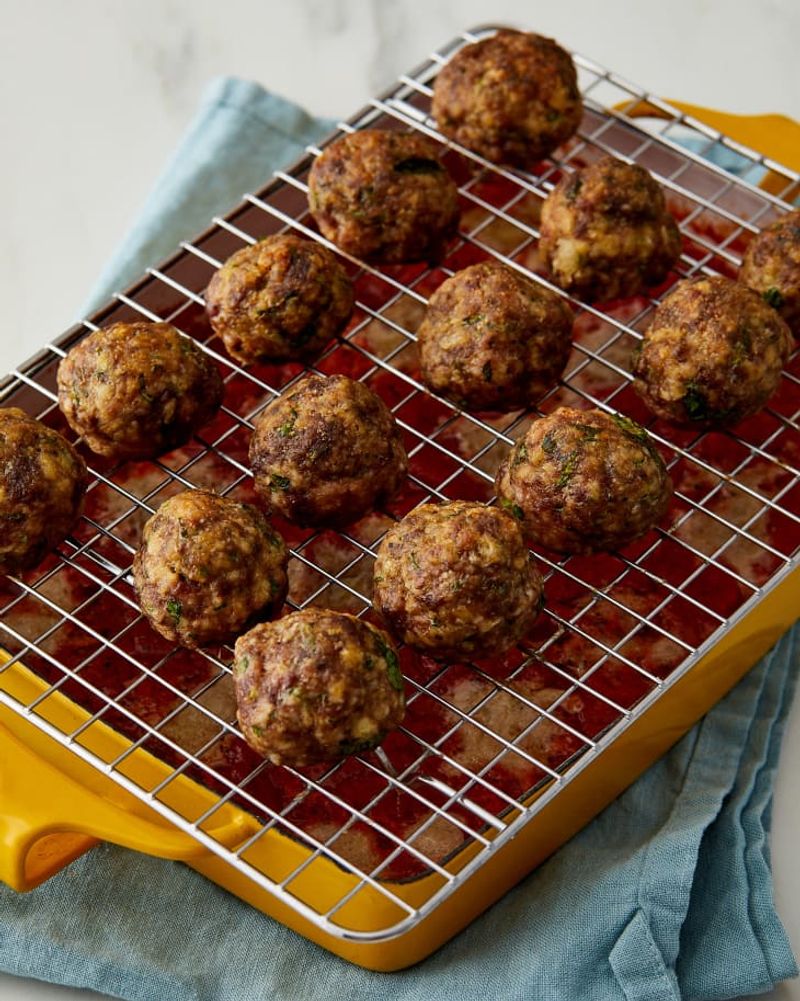
A quarter teaspoon of baking soda might look insignificant, but this humble powder performs molecular wizardry on tough meat proteins! Sprinkle it over your ground meat, mix gently, and let sit for 15 minutes before adding other ingredients.
The alkaline baking soda raises the pH level of the meat, preventing proteins from bonding too tightly during cooking. The science translates to meatballs that stay tender even when cooked well-done. This hack works wonders with leaner meats like turkey or chicken that typically dry out fast.
6. Ice Cube In The Middle
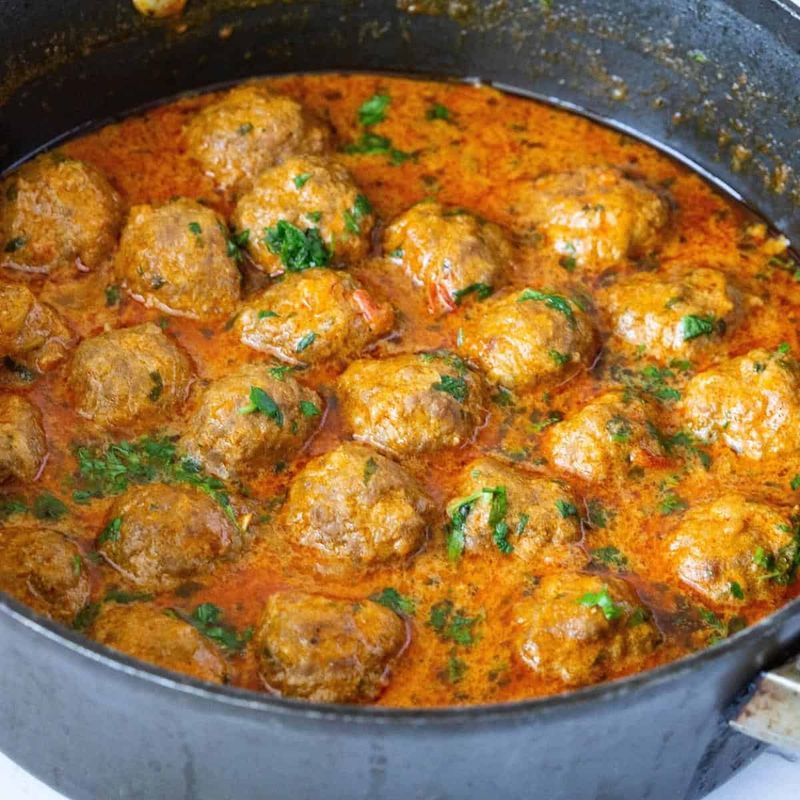
Sounds completely bonkers, but placing a small ice cube in the center of each meatball creates unbelievably juicy results! As the ice melts during cooking, it releases moisture from the inside out, preventing the dreaded dry meatball syndrome.
For this hack, flatten a meatball-sized portion in your palm, place a small ice chip (not a full cube) in the center, then fold the meat around it and roll into a ball. The meat seals around the ice, trapping the moisture where it belongs.
7. Brown Butter Aromatics
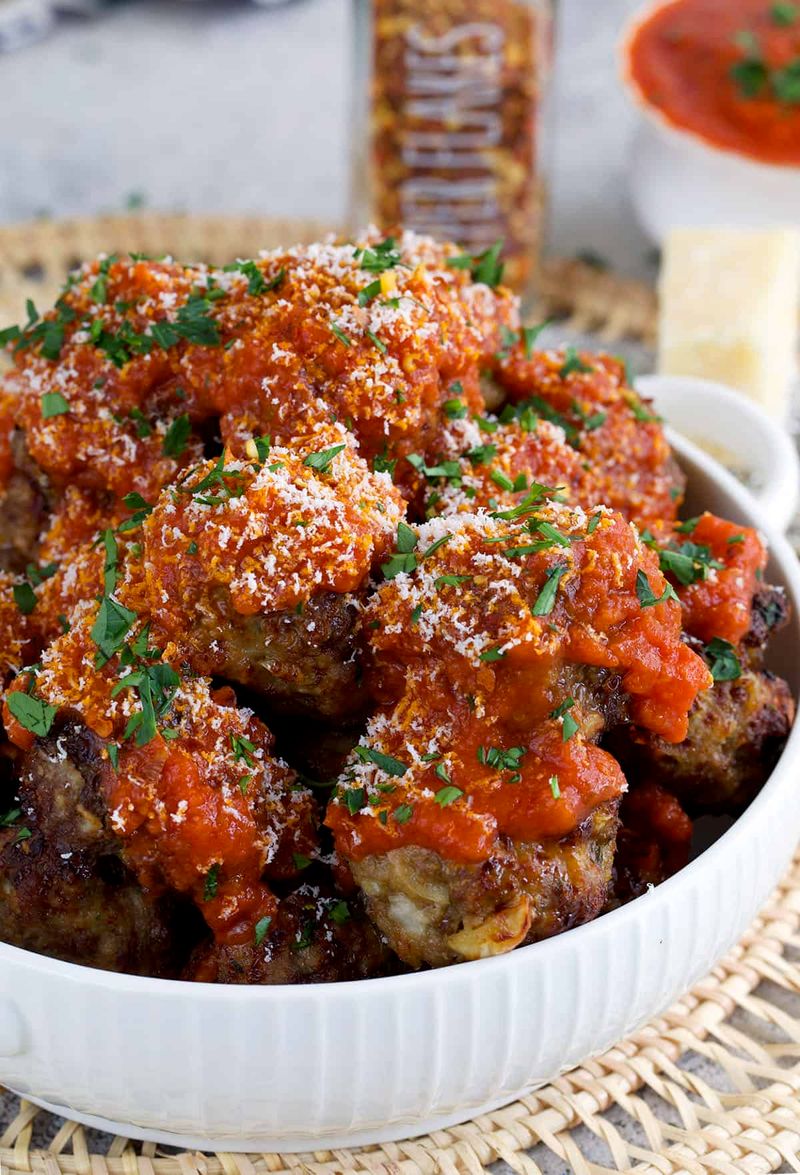
Sautéing garlic and herbs in brown butter before adding them to your meat mixture isn’t just showing off—it’s flavor science! Browning butter creates nutty, caramelized compounds that infuse aromatics with complex depth impossible to achieve with raw ingredients.
Heat butter until it foams and turns golden brown, then add minced garlic, herbs, and spices. The hot fat unlocks fat-soluble flavor compounds, dramatically intensifying their impact. Let cool before adding to your meat to avoid cooking the eggs in your mixture.
8. Meat Mixer Mayhem
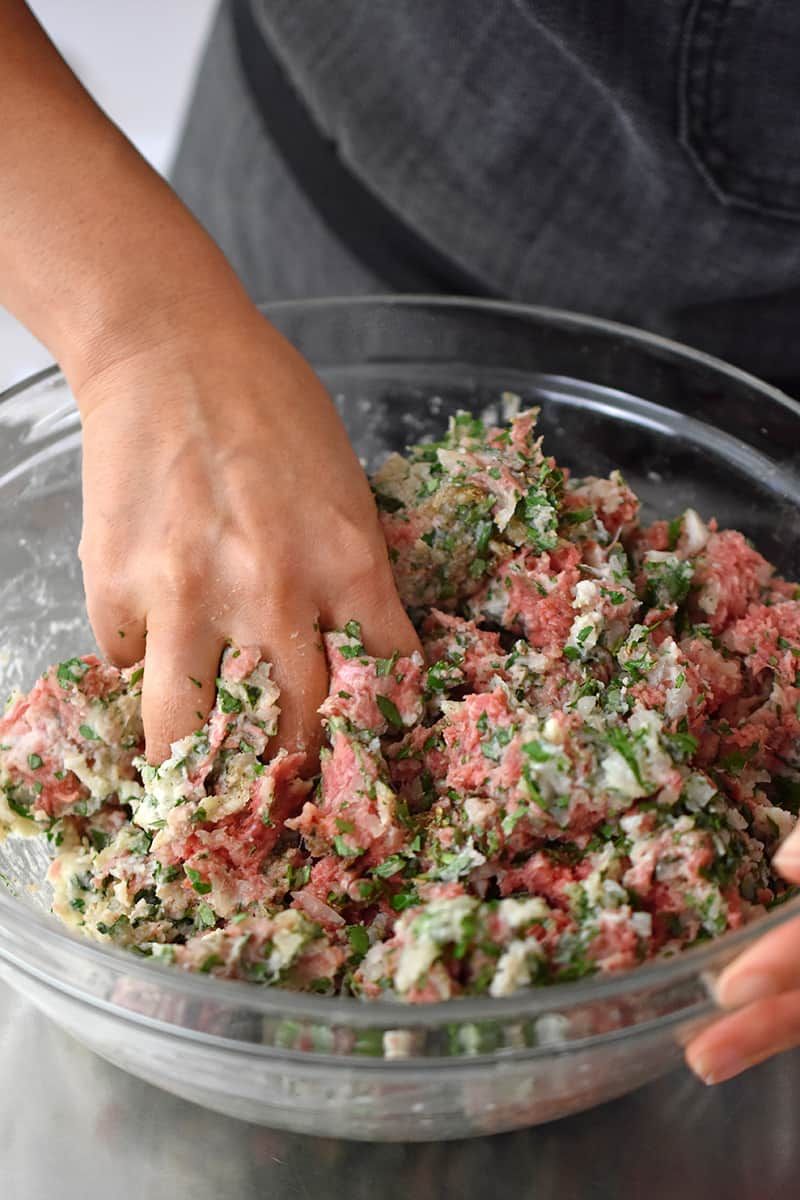
Ditch the spoon and plunge those hands right into the meat mixture! Your fingers are the perfect tools for gently combining ingredients without overworking the meat. Overhandling activates proteins that make meatballs tough and rubbery—the culinary equivalent of a stress ball.
Lightly oil your hands first (prevents sticking) and use a gentle claw-like motion to mix just until ingredients are incorporated. When you still see slight streaks of seasoning, you’re done! The heat during cooking will distribute flavors further.
9. Freezer-To-Oven Miracle
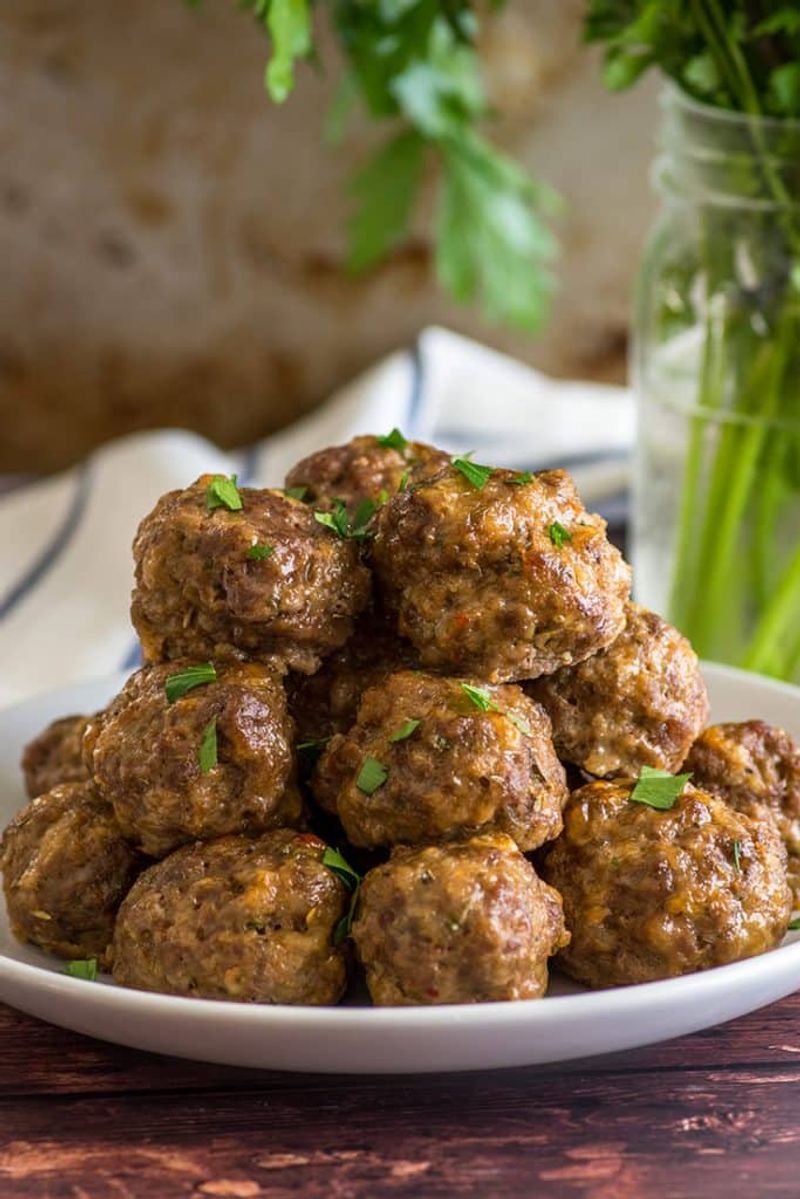
Meatball emergencies happen! Prepare for them by flash-freezing raw meatballs on a baking sheet until solid, then transferring to freezer bags. These ready-to-cook lifesavers go straight from freezer to oven without thawing—just add 5-7 minutes to your normal cooking time.
The magic happens because the outside cooks while the inside thaws gradually, creating an amazingly tender texture. Many chefs swear frozen meatballs actually turn out juicier than fresh ones!
10. Umami Bomb Additions
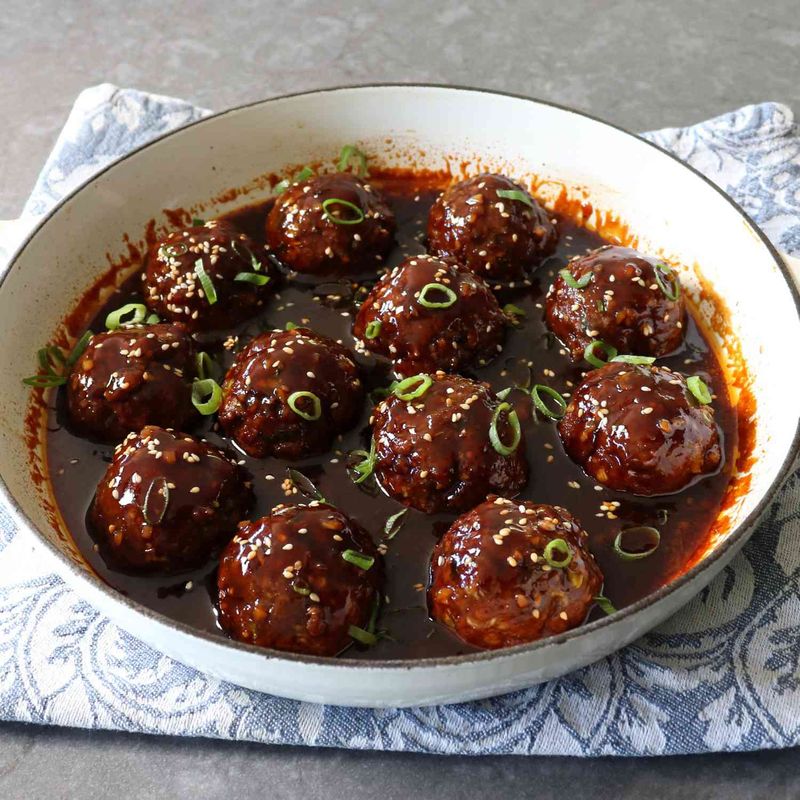
Worcestershire sauce? Amateur hour! Kick your meatball flavor into overdrive with unexpected umami boosters. A tablespoon of fish sauce disappears into the mixture but leaves behind mind-blowing savory depth without any fishiness.
Other secret weapons include a spoonful of miso paste, a splash of soy sauce, or a teaspoon of mushroom powder. These ingredients contain glutamates that amplify meaty flavors without changing the overall profile. The result? Meatballs so flavorful people will swear you used a secret family recipe.
11. Portion Perfect Scoops
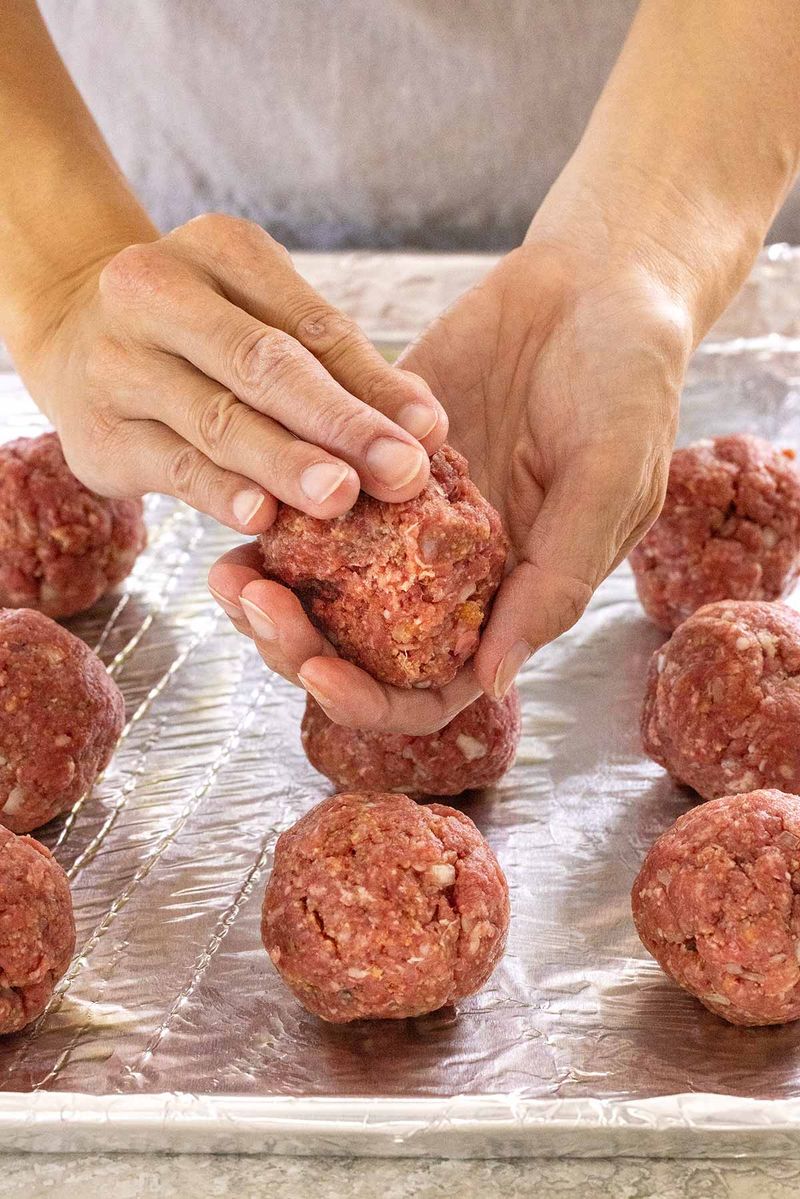
Cookie scoops aren’t just for cookies! These spring-loaded wonders create identically sized meatballs that cook evenly and look professionally made. No more giant meatballs alongside tiny ones resulting in some overcooked while others remain raw in the center.
Medium scoops (about 1.5 tablespoons) make ideal dinner meatballs, while mini scoops create perfect cocktail or soup meatballs. Spray the scoop with cooking oil between every few scoops to prevent sticking. For extra-smooth balls, gently roll between oiled palms after scooping.

